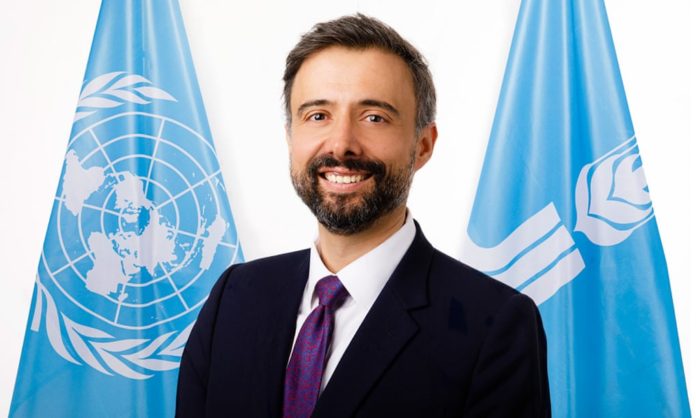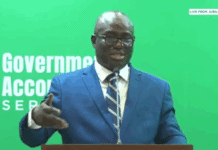Billions needed for water and soil conservation to boost resilience in small farms, says new head of UN’s agricultural financing arm
In his first week in the job, the new head of the UN’s agricultural finance fund admits he has no small task ahead.
Alvaro Lario takes up the role as head of the International Fund for Agricultural Development amid a global food crisis, which he warned could become a regular occurrence.
Lario wants the IFAD to focus on investing in the resilience of small-scale farmers so they can produce food for themselves and are not left at the mercy of external shocks.
“Resilient means that when you have a shock to your income – like currently, with inflation – when you have a shock coming from extreme climate, you’re not going to fall from the brink of poverty into poverty or food insecurity,” said Lario.
The current food crisis, exacerbated by the war in Ukraine, would happen again – and soon – unless world leaders addressed decades of underinvestment in how food was grown and delivered, he warned.
He said hundreds of billions of dollars needed to be directed towards small farms by investing in water and soil conservation, offering low-interest loans, access to markets, and boosting productivity.
“What we’re seeing is that they are currently not even able to actually produce their [own] food, many of them have to sell their assets … because they don’t have enough to feed themselves.”
Lario said the impact of war in Ukraine had disrupted shipping of key crops for months and caused fertiliser prices to jump, exacerbating existing problems as 150 million people had fallen into hunger before the war.
“If we do not invest right now, in terms of tens or hundreds of billions, even if we resolve the Ukraine war soon, in two to five years we will be in the same situation,” he said.
“In the short term, we’ve had a lot of climate shocks, droughts and flooding that have also made it much worse, but generally, the fact that we have not really paid enough attention to how food is produced, how food is distributed, how food is stored, and the creation of jobs in many of these rural areas, is at the forefront of the crisis.”
The IFAD is a Rome-based UN financial agency that works with the UN’s Food and Agriculture Organization and World Food Programme, as well as the private sector, to promote food security through sustainable agriculture by providing grants and cheap loans to farmers in developing countries.
Global food prices reached their highest recorded levels in March after Russia’s invasion of Ukraine and, while they have since dropped, they remain 8% higher than a year ago.
There is concern too about the continued high price of fertiliser affecting agricultural productivity, with sanctions limiting shipments from Russia, the world’s largest exporter of fertiliser, as well as a reduction in the amount coming from China and lower overall fertiliser production in Europe.
Lario said these heightened prices were hard for farmers to pass on to consumers, which is why the international community needed to finance farmers who did not receive assistance from their governments, unlike farmers in richer countries.
“The way of actually tackling poverty, of tackling food insecurity, of tackling the financing of food systems, needs always to start with this long-term rural transformation and bringing small-scale producers to the table,” he said. …
we have a small favour to ask. Tens of millions have placed their trust in the Guardian’s fearless journalism since we started publishing 200 years ago, turning to us in moments of crisis, uncertainty, solidarity and hope.
More than 1.5 million supporters, from 180 countries, now power us financially – keeping us open to all, and fiercely independent.
Unlike many others, the Guardian has no shareholders and no billionaire owner. Just the determination and passion to deliver high-impact global reporting, always free from commercial or political influence.
Reporting like this is vital for democracy, for fairness and to demand better from the powerful. And we provide all this for free, for everyone to read.
We do this because we believe in information equality. Greater numbers of people can keep track of the global events shaping our world, understand their impact on people and communities, and become inspired to take meaningful action.
Millions can benefit from open access to quality, truthful news, regardless of their ability to pay for it. If there were ever a time to join us, it is now. Every contribution, however big or small, powers our journalism and sustains our future








